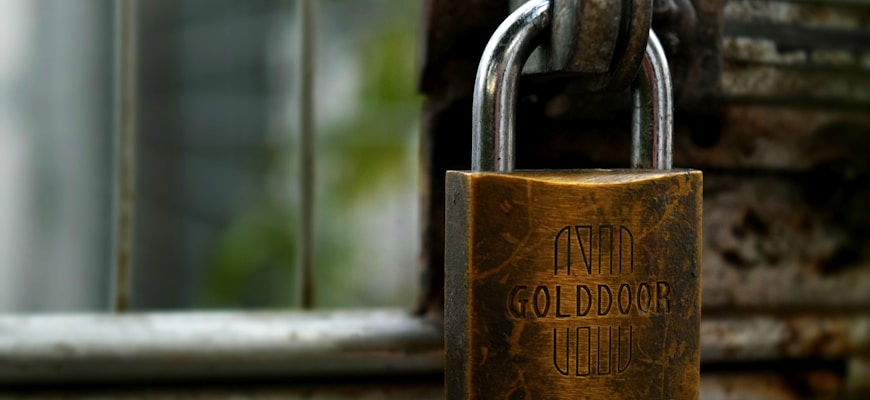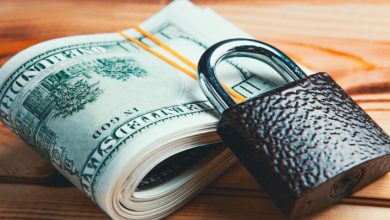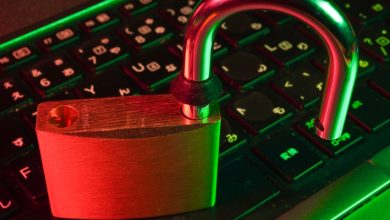Best Practices for Protecting Your Crypto Assets

- Understanding the importance of securing your crypto assets
- Tips for creating a strong password for your crypto wallets
- The role of two-factor authentication in safeguarding your funds
- How to safely store your private keys and seed phrases
- Protecting yourself from phishing scams and malware attacks
- Choosing the right hardware wallet for added security
Understanding the importance of securing your crypto assets
Protecting your crypto assets is crucial in today’s digital world. With the rise of cyber threats and hacking incidents, it is more important than ever to understand the significance of securing your investments. By taking the necessary precautions, you can safeguard your assets and prevent unauthorized access to your funds.
One of the best practices for protecting your crypto assets is to use a secure wallet. A hardware wallet, also known as a cold wallet, is considered one of the safest options available. This type of wallet stores your private keys offline, making it less vulnerable to online attacks. Additionally, using a strong password and enabling two-factor authentication can add an extra layer of security to your accounts.
Another important aspect to consider is keeping your software up to date. Developers frequently release updates to fix security vulnerabilities and improve overall performance. By regularly updating your wallet software and operating system, you can reduce the risk of falling victim to cyber attacks.
Furthermore, it is essential to be cautious when sharing personal information online. Avoid disclosing sensitive details such as your private keys or wallet addresses on public forums or social media platforms. Scammers often target individuals who overshare information, putting their crypto assets at risk.
In conclusion, understanding the importance of securing your crypto assets is the first step towards protecting your investments. By following best practices such as using a secure wallet, keeping your software updated, and being cautious online, you can mitigate the risks associated with digital assets. Remember, prevention is always better than cure when it comes to safeguarding your crypto assets.
Tips for creating a strong password for your crypto wallets
When it comes to protecting your crypto assets, creating a strong password for your wallets is crucial. Here are some tips to help you enhance the security of your accounts:
- Use a combination of uppercase and lowercase letters, numbers, and special characters.
- Avoid using easily guessable information such as your name, birthdate, or common words.
- Make sure your password is at least 12 characters long to increase its complexity.
- Consider using a passphrase instead of a single word for added security.
- Regularly update your passwords and avoid reusing them across different accounts.
By following these guidelines, you can significantly reduce the risk of unauthorized access to your crypto wallets and protect your investments from potential security threats.
The role of two-factor authentication in safeguarding your funds
One of the most effective ways to enhance the security of your crypto assets is by implementing two-factor authentication (2FA). This additional layer of security requires users to provide two different forms of identification before gaining access to their accounts.
By requiring both a password and a secondary form of verification, such as a text message code or a biometric scan, 2FA significantly reduces the risk of unauthorized access to your funds. Even if a hacker manages to obtain your password, they would still need the second factor to complete the login process.
Many cryptocurrency exchanges and wallets offer 2FA as an option for their users. It is highly recommended that you enable this feature on all of your accounts to protect your investments from potential security breaches. While no security measure is foolproof, 2FA is an essential tool in safeguarding your funds from unauthorized access.
How to safely store your private keys and seed phrases
When it comes to protecting your crypto assets, safely storing your private keys and seed phrases is paramount. These are the keys to accessing and managing your digital currency, so it’s crucial to keep them secure from potential threats such as hacking or theft. Here are some best practices to help you safeguard your private keys and seed phrases:
- Use a hardware wallet: Consider investing in a hardware wallet, which is a physical device that stores your private keys offline. This provides an extra layer of security compared to storing your keys on a computer or mobile device.
- Backup your keys: Make sure to create multiple backups of your private keys and seed phrases. Store these backups in secure locations such as a safe deposit box or a secure location in your home.
- Avoid storing keys online: Refrain from storing your private keys and seed phrases on online platforms or cloud storage services, as these can be vulnerable to cyber attacks.
- Keep your keys private: Never share your private keys or seed phrases with anyone, as this could compromise the security of your crypto assets. Keep this information confidential at all times.
- Use encryption: Consider encrypting your private keys and seed phrases to add an extra layer of protection. This can help safeguard your information in case your storage method is compromised.
By following these best practices, you can help ensure that your private keys and seed phrases are safely stored and protected from potential threats. Remember, the security of your crypto assets ultimately depends on how well you safeguard these essential pieces of information.
Protecting yourself from phishing scams and malware attacks
It is crucial to take proactive measures to protect your crypto assets from phishing scams and malware attacks. Phishing scams involve fraudulent attempts to obtain sensitive information such as usernames, passwords, and financial details by posing as a trustworthy entity. Malware attacks, on the other hand, involve malicious software that can compromise the security of your devices and steal your crypto assets.
To protect yourself from phishing scams, be cautious of unsolicited emails, messages, and links that ask for personal information or prompt you to log in to your crypto accounts. Always verify the authenticity of the sender before responding or clicking on any links. Use two-factor authentication (2FA) to add an extra layer of security to your accounts and avoid using public Wi-Fi networks for crypto transactions.
When it comes to malware attacks, keep your devices updated with the latest security patches and antivirus software. Be wary of downloading files or software from unknown sources, as they may contain malware that can compromise your crypto assets. Use a hardware wallet to store your crypto assets offline and protect them from online threats.
Choosing the right hardware wallet for added security
When it comes to protecting your cryptocurrency assets, one of the best practices is to use a hardware wallet for added security. Hardware wallets are physical devices that store your private keys offline, making them less vulnerable to hacking and cyber attacks.
There are several factors to consider when choosing the right hardware wallet for your needs. First, you should look for a wallet that supports a wide range of cryptocurrencies, so you can store all of your assets in one place. Additionally, you’ll want to make sure that the wallet has a strong reputation for security and is easy to use.
Some popular hardware wallets on the market include Ledger Nano S, Trezor, and KeepKey. These wallets offer a combination of security features, user-friendly interfaces, and support for multiple cryptocurrencies. Before making a decision, be sure to read reviews and compare the features of each wallet to find the best option for you.
Overall, using a hardware wallet is an essential step in protecting your crypto assets from theft and hacking. By taking the time to choose the right wallet for your needs, you can have peace of mind knowing that your investments are secure.




